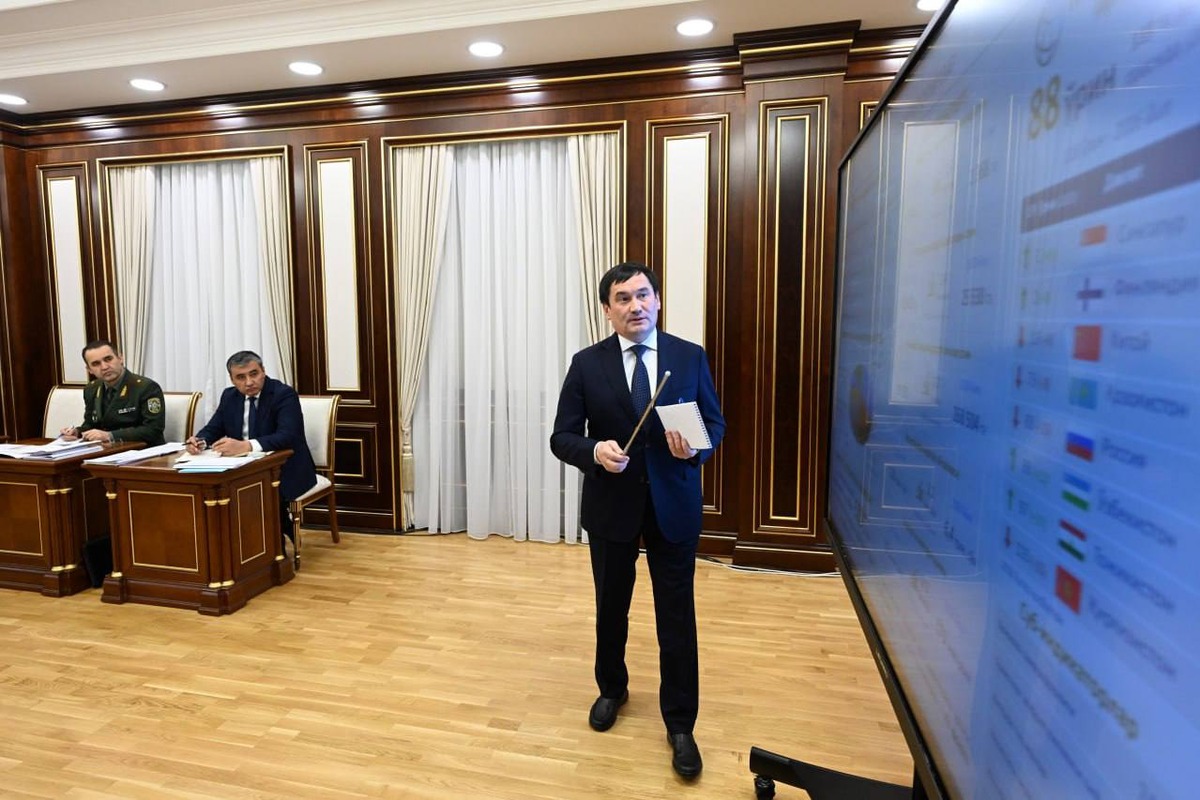Uzbekistan will adopt a Concept for the development of the transport and logistics system and transit potential until 2030. This was announced on January 11 in an interview with the Uzbekistan 24 TV channel by Transport Minister Ilkhom Makhkamov.
According to him, it is planned to organize work in five areas, including creating conditions for international transportation.
“We must identify alternative corridors and directions for passing through problematic countries,” the head of the Ministry of Transport noted.
The presentation lists the following alternative transport corridors:
- Turkmenistan – Iran – Türkiye – European Union;
- Turkmenistan – Azerbaijan – Georgia – Europe;
- Uzbekistan (Andijan) – Kyrgyzstan (Osh, Irkeshtam) – China (Kashgar) (this corridor was planned to be developed jointly with China);
- Uzbekistan – Afghanistan – Pakistan.
In addition, it is planned to sign new agreements in this area with Belgium, Armenia, Serbia, Norway, Croatia, Albania in terms of international road transport. It is also planned to review agreements with China, Iran, Belarus, Ukraine, Moldova and Romania.
According to him, the president ordered the creation of alternative routes for exported and imported goods, as well as the creation of conditions for local freight carriers to pass through them.
The President also instructed to increase the volume of transit traffic through the territory of Uzbekistan. This figure should increase to 14.6 million tons (+13.7%) in 2025. The volume of transit cargo along the Belarus-Pakistan route is expected to increase to 700 thousand tons (+200 thousand), China-Europe – to 200 thousand tons (+50 thousand), China-Afghanistan – to 150 thousand tons (+80 thousand).
In the World Bank’s Logistics Index, the country improved its position from 118th place in 2016 to 88th place in 2023, and the goal is to rise to at least 55th place by 2030.
Uzbekistan also intends to connect to the TRACECA system – the Europe-Caucasus-Asia transport corridor.
Conditions will be created for international carriers along the main routes. In particular, 266 service points, free parking zones for temporary placement of foreign trucks, camping sites and logistics centers will be organized for them.
Moreover, it is proposed to create a system of “green corridors”, as well as achieve mutual recognition of cargo documents.
At the checkpoints “Davut-ota”, “Gishtkuprik” and “Navoi” it was ordered to create electronic queue systems and online surveillance.
During the presentation, it was also reported that the market for freight forwarding services in Uzbekistan, which connect shippers and carriers, is estimated at $520 million. Foreign companies account for 90% of the share. In order to increase the share of local freight forwarders to 50%, they will be exempt from VAT. The President instructed to diversify foreign trade directions.







